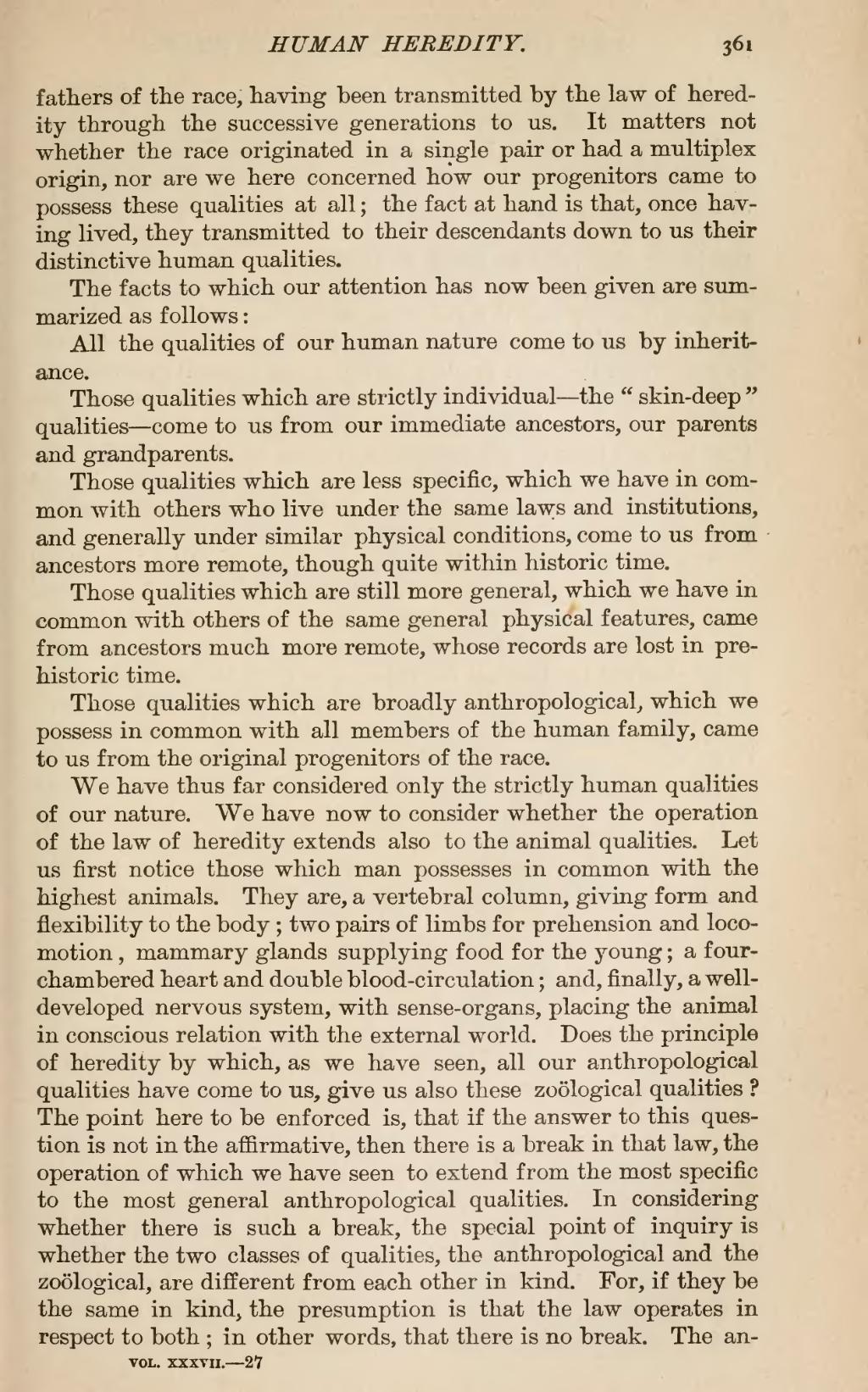fathers of the race, having been transmitted by the law of heredity through the successive generations to us. It matters not whether the race originated in a single pair or had a multiplex origin, nor are we here concerned how our progenitors came to possess these qualities at all; the fact at hand is that, once having lived, they transmitted to their descendants down to us their distinctive human qualities.
The facts to which our attention has now been given are summarized as follows:
All the qualities of our human nature come to us by inheritance.
Those qualities which are strictly individual—the "skin-deep" qualities—come to us from our immediate ancestors, our parents and grandparents.
Those qualities which are less specific, which we have in common with others who live under the same laws and institutions, and generally under similar physical conditions, come to us from ancestors more remote, though quite within historic time.
Those qualities which are still more general, which we have in common with others of the same general physical features, came from ancestors much more remote, whose records are lost in prehistoric time.
Those qualities which are broadly anthropological, which we possess in common with all members of the human family, came to us from the original progenitors of the race.
We have thus far considered only the strictly human qualities of our nature. We have now to consider whether the operation of the law of heredity extends also to the animal qualities. Let us first notice those which man possesses in common with the highest animals. They are, a vertebral column, giving form and flexibility to the body; two pairs of limbs for prehension and locomotion, mammary glands supplying food for the young; a four-chambered heart and double blood-circulation; and, finally, a well developed nervous system, with sense-organs, placing the animal in conscious relation with the external world. Does the principle of heredity by which, as we have seen, all our anthropological qualities have come to us, give us also these zoölogical qualities? The point here to be enforced is, that if the answer to this question is not in the affirmative, then there is a break in that law, the operation of which we have seen to extend from the most specific to the most general anthropological qualities. In considering whether there is such a break, the special point of inquiry is whether the two classes of qualities, the anthropological and the zoölogical, are different from each other in kind. For, if they be the same in kind, the presumption is that the law operates in respect to both; in other words, that there is no break. The an-
